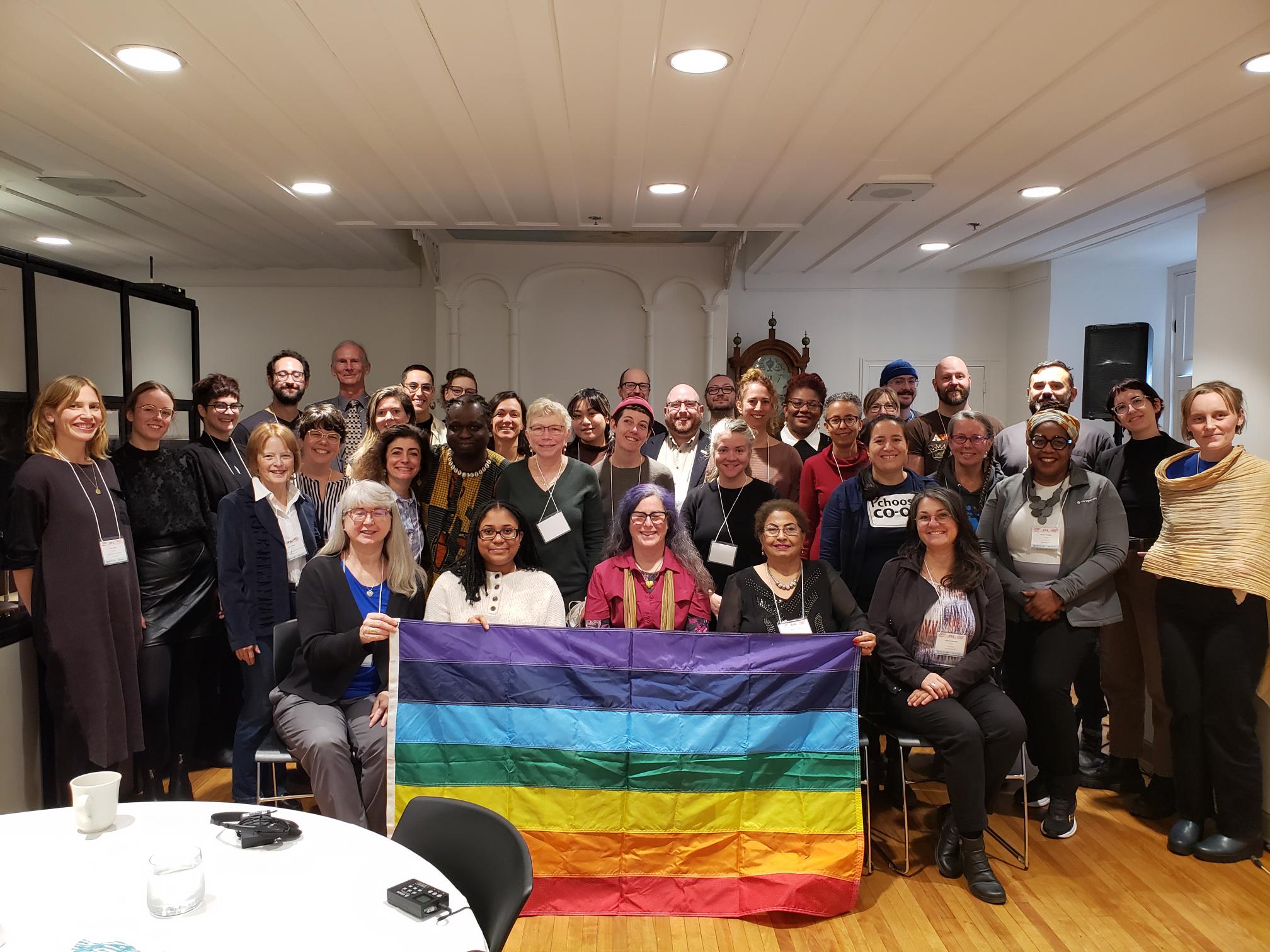
By Kenzie Love
Worker co-operators from across Quebec and the rest of Canada gathered in Quebec City November 14-16 for CWCF’s 2023 Conference, Stronger Together, hosted jointly with Quebec’s Réseau COOP. The Conference theme was chosen to demonstrate that in a world that often prizes individual achievements over collective success, we need a co-operative ethos now more than ever.
Taking place within the Monastère des Augustines, a refurbished, historic monastery now a wellness and yoga retreat centre, the Conference offered the 57 participants something of a respite from the grind of everyday life. Even within this tranquil setting, there was no escaping the many challenges facing the world today, from the climate crisis, the conflict in Israel and Gaza, soaring income inequality, systemic racism, and other issues.
The worker co-op movement isn’t immune to any of these issues. The Conference showed it has the potential to offer solutions to many of them, starting within CWCF’s member co-ops.Margaret Tusz-King noted in her presentation “Back to the Fundamentals: A Rubric for Mental Health for Life and Work,” worker co-ops have a “co-op difference” ability to create the workplaces we want to work in, and improving mental health can be a part of this.
Juliet ‘Kego Ume-Onyido noted in a subsequent presentation, however, efforts to improve mental health will only be effective if they take place within a context that recognizes the root causes of mental health challenges. Observing how worker co-ops can sometimes operate in silos, Juliet made a powerful case for coming together to tackle issues such as poverty and racism, and the opportunity that exists to create a better world in the process. Immediately following, Mohammed Zaqout of LightWork Co-op in Surrey, BC who is originally from Gaza, Palestine, made another powerful case for connection as a way to deal with trauma. He openly shared the situation of his family and community, which was challenging and deeply moving – including when he led participants in a humming exercise to deepen the sense of connection.
Located within Quebec City’s thriving worker co-op scene, the Conference provided a small-scale example of what such a world might look like, one that participants got a glimpse of by touring four local worker co-ops. But as Rebecca Kemble observed in her presentation on the Solidarity Economy Principles Project, if the movement is to achieve its objective of truly transformative change rather than mere harm reduction, worker co-op networks in places such as Quebec City must become part of a much bigger ecosystem. Then Karine Awashish of the Nitaskinan Co-op inspired the group with her presentation on co-operation for Indigenous self-determination. She noted that co-operation has long been the basis of Indigenous societies and strongly linked to nature. The co-op sector needs to be decolonized, and the way forward is dialog and exchange.
While worker co-ops may only comprise a small part of this ecosystem, the Conference revealed the vital role they can play. Bruno Roelants, former Director-General of the International Co-operative Alliance, observed in his keynote address, worker co-ops aren’t that significant on a quantitative scale. But qualitatively, they can continue to have an outsize impact as a constant laboratory on how to organize work.
Also included at the Conference were various workshops, many rapid-fire Ignite presentations, the opportunity for consulting time with worker co-op developers, and the CWCF AGM.
The Conference may have been only three days. The length of time participants got to spend together was far exceeded by the event’s lasting impact, a testament to the movement’s resilience even in the midst of hard times. As one first-time attendee stated: the Conference “provided a renewed sense of hope & faith & excitement for the future. We have a lot of things to be worried about. However, not only are we stronger together, but democracy is the best form of coming together, and worker co-ops are the best form of co-ops.”